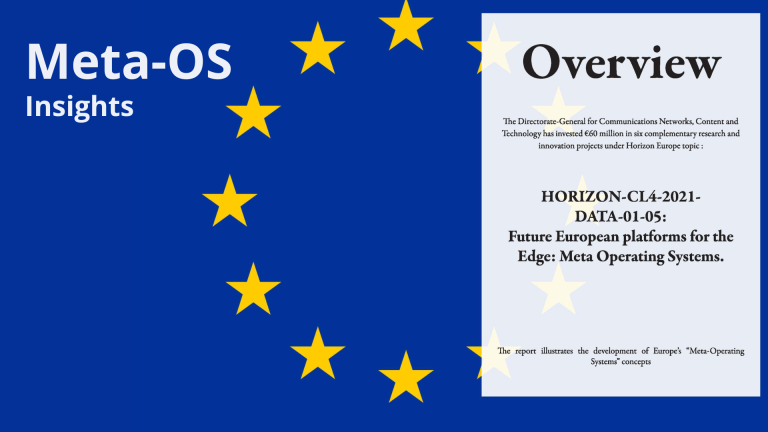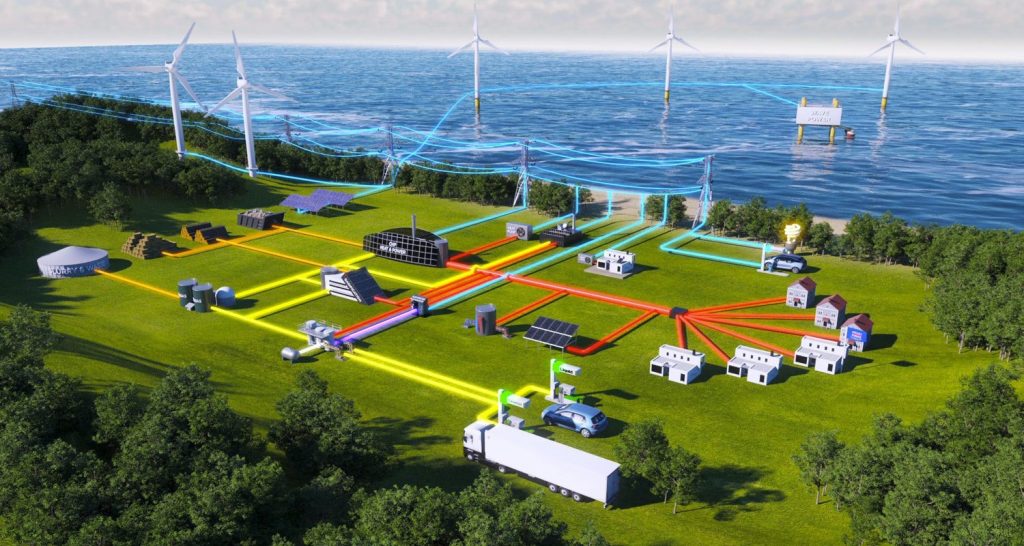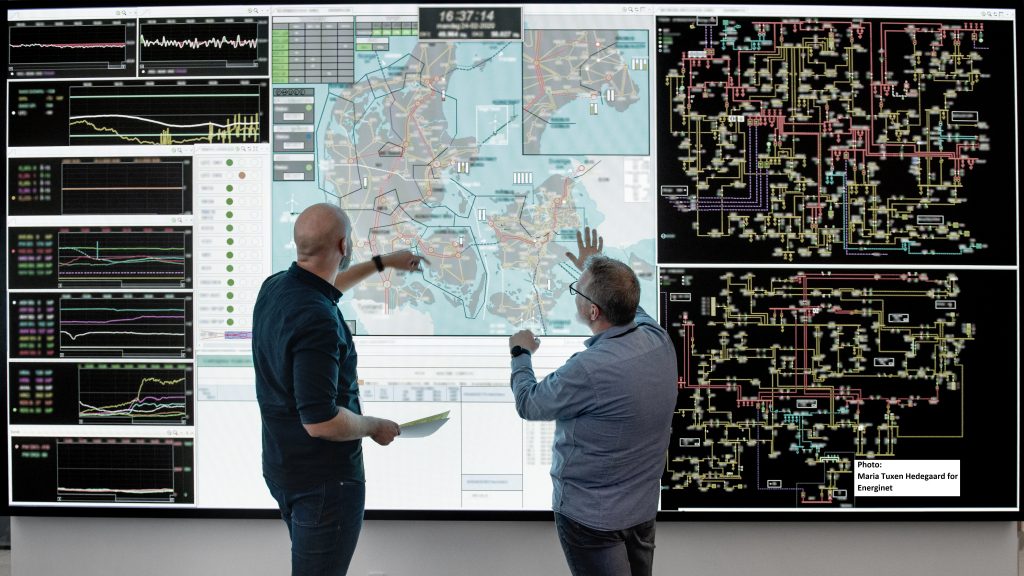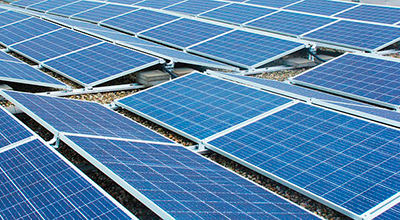Centre for IT-Intelligent Energy Systems
The CITIES project was a research project for smart energy systems and smart cities. The project has shown how to integrate energy systems powered by AI / intelligent use of data through keywords as digitalization, flexibility, and sector coupling. CITIES will continue as a platform for information sharing.
The research in the CITIES project has focused on methodologies and smart energy solutions to facilitate the green transition to a fossil-free energy system.
The CITIES project was a strategic research project funded by Innovation Fund Denmark with a project runtime from 2014 to the end of 2020. The CITIES project will continue from 2021 as the centre ‘CITIES’. CITIES will share research results, solutions, and software tools on this CITIES homepage. Find them under ‘Resources’.
Findings in the CITIES project – possible benefits (CO2 + Costs) from digitalization:
- Up to 800 mill DKK annually savings in Denmark by data-driven temperature optimization (and tons of CO2 savings) in the district heating system
- 10-30 pct savings by predictive control of heat pumps
- 5-15 pct savings by integrating forecasts in smart house controllers
- 10-40 pct improvements in electricity and heat load forecasts
- Up to 10 pct savings by optimal operations of CHP and DH plants
- 5-12 pct savings by smart wastewater treatment
- 10-20 pct savings on cooling for supermarkets
- Up to 90 pct savings on cooling for data centres
We could possibly be fossil-free tomorrow!
The CITIES project’s partners have 29 recommendations in order to achieve the green transition of the energy system. Find them here and under the five topics, where you also find some of our software tools. We have identified three main challenges to be solved: Flexibility, Sector coupling, and Turning the energy system upside-down.
The work in CITIES has also led to the creation of two digital platforms for
global infrastructure in the energy system, Center Denmark and Uni-lab.dk.
Read more in the Press release: The CITIES project delivers digital and data-driven energy solutions for green transition, January 31, 2021
CITIES’ research, findings, and thoughts continue also through other projects and the platform frigg.energy to share tools for energy optimizations. The CITIES project homepage also continues to share research from the new CITIES Centre. See also new postings: https://smart-cities-centre.org/post-archive/
Stay tuned for the SUMMER SCHOOL 2026!
Smart Energy OS
This report from the European Commission illustrates the development of Europe’s “Meta-Operating Systems” concepts for a spectrum of applications.
Regarding Smart Energy Systems, the example mentioned in the report is the Smart Energy OS, which is developed and maintained within our Center for IT-Intelligent Energy Systems (CITIES) – please see page 35 of the report.
The research in CITIES has identified three main challenges that we must solve on the road to green transition
Turning the energy system upside-down
Today, electricity production adapts to consumption. In the future, consumption must be adapted to energy production based on wind and solar that varies. Listen to Professor Henrik Madsen, Project Manager for CITIES.
Flexibility
Flexibility in electricity consumption will be a keyword for the green transition, in the energy system of the future based on solar and wind. Rune Grønborg Junker from DTU Compute talks about how to unlocking consumers flexibility potential.
Sector coupling
CITIES has shown that AI tools can easily control the interaction between electricity, heat and gas so that you utilize energy optimally and save CO2. Listen to Professor Henrik Madsen, Project Manager for CITIES.
CITIES related projects
Although CITIES ends by the end of 2020 after seven years of research, CITIES’ research, findings and thoughts continue through other projects based on research in CITIES or inspired of CITIES. This applies the following projects:
Center Denmark is a new digital hub for smart energy systems. Center Danmark will develop the best-in-class nationwide data platform for energy-related data that combined with forefront AI identifies flexibilities on the demand side across the energy systems. The hub will connect several Danish living labs in a data lake for scaling and establishing new micro-grid test and demonstration facilities.
FED develops data-driven solutions for controlling electricity consumption to ensure that Danish electricity consumption becomes flexible and surplus electricity from wind turbines and solar cells are better utilized. Real-time data from various sensors and monitoring systems in living labs (geographical areas that are working with energy challenges) are sent into the data lake at Center Denmark.
Uni-lab.dk is a gathering point for living labs and test labs working with sustainable technologies. It’s built upon Center Denmark (a digital hub for smart energy systems) and closely related to FED, Flexible Energy Denmark. Uni-lab.dk can help universities and Danish companies find suitable labs and partners to develop, test, and demonstrate sustainable solutions and next-generation products.
HEAT 4.0 develops an integrated flexible product cloud platform, called HEATman. The platform allows district heating companies to adjust software products from different providers to their own needs. Today, IT tools can rarely be integrated. A major achievement is the ability to oversee the entire system and value chain – and to digitize the DH sector through data, AI, and other cutting-edge tech. Learn more on the special HEAT 4.0 page on the CITIES’ platform.
SCA worked across Öresund to test the methodologies from CITIES for energy efficiency improvements and energy renovations, digitization potential in the district heating network, energy communities, legislation, etc. The project used Open Innovation Calls as a tool to get in contact with small startups with great ideas and solutions for complicated energy problems like power peak shavings. EU Interreg supported ultimo 2020 to September 2022 the Smart Cities Accelerator+ with partly new partners.
In Cool-Data the partners want to develop a flexible thermal cooling and storage system powered by artificial intelligence, for small and medium-sized data centres with up to 500 servers. The system stores renewable energy when there is a surplus of it and uses this energy in the cooling process. The system must also be able to send the excess heat from the cooling to the district-heating network.
The project works with sustainable plus energy neighbourhoods with more than 100% energy savings, 90% renewable energy generation triggered, 100% GHG emission reduction, and 10% life cycle costs reduction, compared to nZEB levels. Four real-life plus-energy demo cases in four different climatic zones will be developed and analyzed to demonstrate the neighbourhood concept for the rest of Europe.
The project works with the flexibility of energy networks, test business models and supports important stakeholders with tailor-made end-user interfaces. It will test a variety of solutions at four real demonstration sites in Spain, Italy, France and Denmark. eBalancePlus also addresses safety issues and looks at people’s needs and concerns of smart grids in relation to increase the technology.
Through demo cases in Italy, Denmark, and Spain the SmartNet project provides optimized instruments and modalities to improve the coordination between the grid operators at national and local levels (respectively the TSOs and DSOs) to find answers and propose new practical solutions to the increasing integration of renewable energy sources in the existing electricity transmission network.
TOP-UP develops tailored solutions for the Groningen (NL) and Copenhagen (DK) energy systems by integrating heat and electricity networks and studies how these solutions can be scaled and customized to other regions. The project uses expertise in modeling, automation, social sciences, and practice in making the best use of local renewable energy and reducing the dependency on fossil fuels.
The project wants to introduce a complete automated demand response framework and tool suite for residential electricity consumers. The framework will enable energy cooperatives to explore demand response business models and take the role of aggregators to actively support the energy transition and benefit from it. The pilot participants are two operatives in Netherlands and Spain.
The project collects and disseminates good experiences about intelligent data use and self-learning systems in district heating. This includes technical advantages and economic savings, as well as its CO2 reduction potential so the senior executives, decision-makers, and politicians involved in district heating can be given the best possible conditions for assessing the potential of digitalization.






